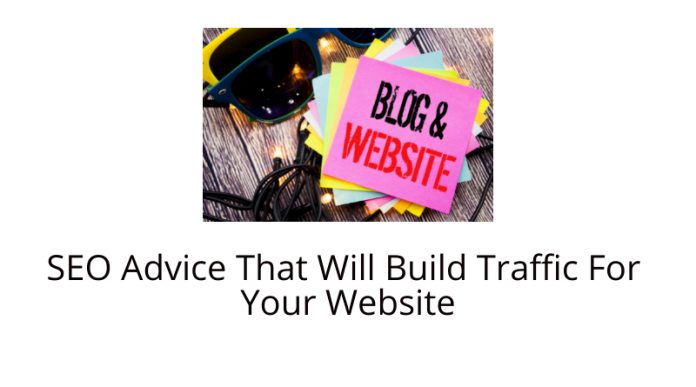If you’re looking for SEO advice to help you build traffic for your website, you’ve come to the right place. Content is king! People will share your content if you have a high-quality website. Here are three tips to help you optimize your content for search engines. Read on to learn more. Your content will determine the quality of search engine results. You can also get advice on creating a site map and meta description for your website.
Content is most influential on search engine rankings
Getting ranked well on Google’s search engine results page (SERP) depends on the quality of your content. Some types of content are more relevant to Google than others. And “freshness” may play a role in Google’s algorithm. Before creating fresh content, you must learn what it is and what it does not mean. New content is only relevant if it is necessary to your end-user.
To get a solid search ranking, you must create engaging content that draws traffic and engenders your audience. Great content will increase click-through rates, encourage repeat visits, and get links. And shareable content and boost your time on the page. These actions signal search engines that your content is relevant and deserves to be higher in the SERPs. The more people engage with your content, the higher it will rise in the rankings. Developing a content map will help you outline the plan for your website.
Creating a sitemap
If you plan to make changes to your website, you can test the effects on traffic with Google Webmaster Tools, Analytics, and server logs. You can also contact an SEO advice from professional to help you migrate your website. Yet, migration, optimization, and consolidation can quickly tank your site. To avoid this, follow these guidelines. This article will discuss what changes to make to your sitemap.
A sitemap makes it easier for search engines to find your pages. Google will find it difficult to index all your pages when you have a large website without a sitemap. If your website has many orphan pages. And has little or no internal linking, having a sitemap will make the process quicker and easier. This is excellent SEO advice for websites of all sizes and one that can bring you a lot of visitors!
A sitemap is a file that informs search engines about your website’s files. And allows them to crawl it more efficiently. It also lets search engines know which pages on your website are the most important. And where to find alternate language versions of those pages. It also allows them to know which pages are essential, such as videos or images. A sitemap can specify the title and publication date of articles for news sites.
An XML sitemap is a valuable tool for large websites. Without one, crawlers would have no idea what pages are on your website. Without a sitemap, crawlers can still index your website. But it makes crawlers’ work easier and makes it easier to highlight hidden content. This is why it’s so essential to create a sitemap for your website.
Creating a meta description
One of the first things you should remember when creating a meta description is that it should be short but contain the target keywords. Your description should summarize the content on your website in 15 words and entice readers to click through. Your description should also include a CTA (call to action). So that potential customers can easily purchase from you. Creating a description should be easy to write, and you should make it as short as possible.
When creating a meta description for your website. You should keep in mind that search engines will bold the most relevant keywords to the page. This will encourage people to click through your website, and it can also improve your SEO. Make sure that your meta description accurately represents the content of your page. If it isn’t, people will leave your site. Hence, make sure that your meta description is unique and informative enough.
When writing a meta description, you should address the main motivation for searchers. For example, if you are selling cheap flights from JFK to LAX. Your meta description should mention the price range of your flight and its cost. This way will help your website stand out from the crowd. And remember that the more unique your description is, the more likely someone will click on it.
Using structured data in your meta description can help you snag Google snippets. Using structured data can increase your meta description’s quality score and improve your website’s rank. And while the meta description is critical to your seo advice. And it can be a crucial element in your search engine optimization. The more unique your meta description is, the better it will rank.
While meta descriptions are not directly tied to search engine ranking algorithms. They influence the number of clicks your website receives. Providing a compelling meta description can boost your click-through rate. And increase website traffic to engage potential customers. Google recognizes a high CTR as a positive indicator. And a high CTR means that more viewers will click on your content, which will help your website’s rankings.
Choosing a primary keyword
Before choosing a primary keyword, consider the competition and difficulty of the term. Keywords with high search volumes and low difficulty scores are the most successful. These terms will allow you to rank well in search engines and bring you qualified traffic. Using tools like Alexa Marketing Stack will help you identify which terms are worth targeting. Depending on the nature of your website, you can target more than one keyword.
Once you’ve narrowed your search volume, it’s time to map out the content for your page. Start by identifying the main theme of the page. Then, write your content around that theme. Google highly appreciates relevant content from seo advice. Make sure that your content is relevant to the page’s main theme, and use the keyword in your content. Ultimately, you’ll have optimized pages that rank high for many more keywords than you originally planned.
In addition to content, you need to consider meta keywords. These keywords are used in your HTML or meta tag information. And determine your website’s relevance to the target audience. They should be at least 2% of the total words on the page. If your website is focused on jewellery, you might want to avoid using terms like “buy jewellery supplies.”
While choosing a primary keyword, consider whether it’s possible to create videos with the keyword. Keywords with question-based content are more likely to appear in featured snippets. If you’re unsure, try using Ubersuggest to help you choose a primary keyword. Your primary keyword should be used strategically throughout your sites. Such as page titles, subheadings, and the first paragraph of your content.
Before selecting a primary keyword, take a few moments to analyze your website. And decide which content should be grouped. The most relevant topics are those that your audience is interested in. For example, if you sell Dell laptops with 14-inch screens. And you will want to include “14-inch laptops” in your headline and keywords. And this shows that these people are likely to make a purchase.



















